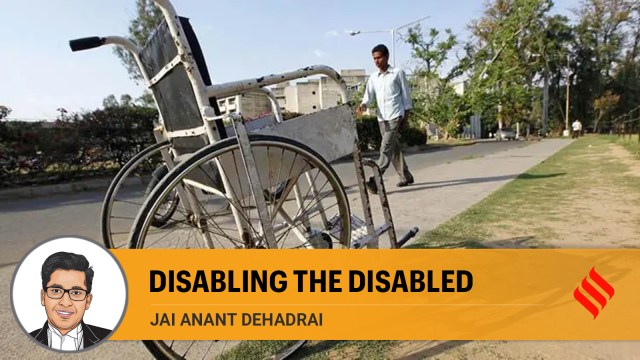
Imagine being taxed each time you went for a walk, to print a document, or for simply having your limbs intact. This is precisely the manifest injustice being faced by millions of disabled Indians. Although it sounds absurd and patently unfair, this is a consequence of the Goods and Services Tax regime prevalent in India. This law was enacted in 2017 to simplify and consolidate India’s tax regime. For the last seven years, since its enactment, disabled individuals who rely upon prosthetic limbs, Braillers and wheelchairs must compulsorily pay an additional five per cent tax on these essential mobility aids.
Revenue policymakers in India have created such a regime which not just discriminates against the disabled but goes a step further and effectively penalises them for being disabled. This comes as a surprise given Prime Minister Narendra Modi’s concern for the disabled whom he refers to as being “divyang” — which means divine in Hindi. The constitutional position concerning this brazen illegality is unambiguous. A tax regime which has the effect of penalising movement and learning, activities that able-bodied individuals do not pay any tax for, outrightly fails the test of reasonableness under Article 14 of the Constitution. Even without applying any esoteric and complex legal principles, a layman can also understand the unfairness of the arithmetic behind this.
Let us take the case of a wheelchair user who pays five per cent GST for a motorised wheelchair costing Rs 1 lakh. If the life of the wheelchair is taken to be 500 kilometres, the tax burden on the disabled user can easily be worked out to be Rs 10 per kilometre. Naturally, an able-bodied person would scoff at the notion of having to pay the government a tax for every kilometre they walk. Similarly, a blind person today must absorb the tax burden of a Braille publisher, which is an additional levy owing only to them being blind. Such a tax levied on goods used by people with disabilities for their movement and to acquire knowledge amounts to the most explicit and trenchant form of discrimination possible.
The Supreme Court has had numerous occasions to test the constitutionality of a tax levied by the government in landmark cases such as Sakal Papers (1961), Indian Express (1984), and more recently, Aashirwad Films (2007). Our judges have consistently struck down any tax, cess or duty, which have had the effect of even indirectly curtailing a fundamental right. In Sakal Papers, the Supreme Court struck down the government-imposed restrictions on advertising in newspapers as being violative of free expression — noting that reduced advertising would lower the circulation of the newspaper thus impacting the citizen’s fundamental right to free speech and expression under Article 19(1)(a). Similarly in Indian Express, a case which came 23 years after Sakal Papers, the Supreme Court while striking down the customs duty imposed on newsprint, termed such a levy as being a “burden imposed on the common man for being literate and for being conscious of his duty as a citizen to inform himself about the world around him.” In Aashirwad Films, the Supreme Court considered the constitutionality of a tax levied on non-Telugu movies being screened in Andhra Pradesh. While striking down this clearly discriminatory levy, the Court went so far as to term such a tax as being “socially divisive.”
The tax imposed on disability aids is no different. It has the effect of perpetuating negative stereotypes against those who are disabled by expressly penalising their disability as against their able-bodied counterparts who bear no such tax burden for performing the most basic of tasks — walking and reading. In 2024, such a tax regime must no longer remain on the books. Even when tested on the anvil of Article 15, which prohibits discrimination on grounds of “place of birth”, this tax fails. The phrase “place of birth” used in this provision must be given a purposive interpretation to include individuals with disability and on that ground too, such a tax must be struck down. In fact, the government enacted the Rights of Persons with Disability Act in 2016, which, under Section 3, specifically prohibits discrimination against persons with disability. Chief Justice D Y Chandrachud in a landmark judgment from 2021 on Article 15 (Lt. Col. Nitisha), held that the conception of equality requires the recognition of indirect discrimination.
Even though the GST revenue collected from disability aids is minuscule as compared to the total figure, the issue is one of dignity for the disabled and by taxing them for something as basic as movement and reading, we send them a message not of empowerment but of inferiority.
The writer is an advocate practising before the Supreme Court of India



